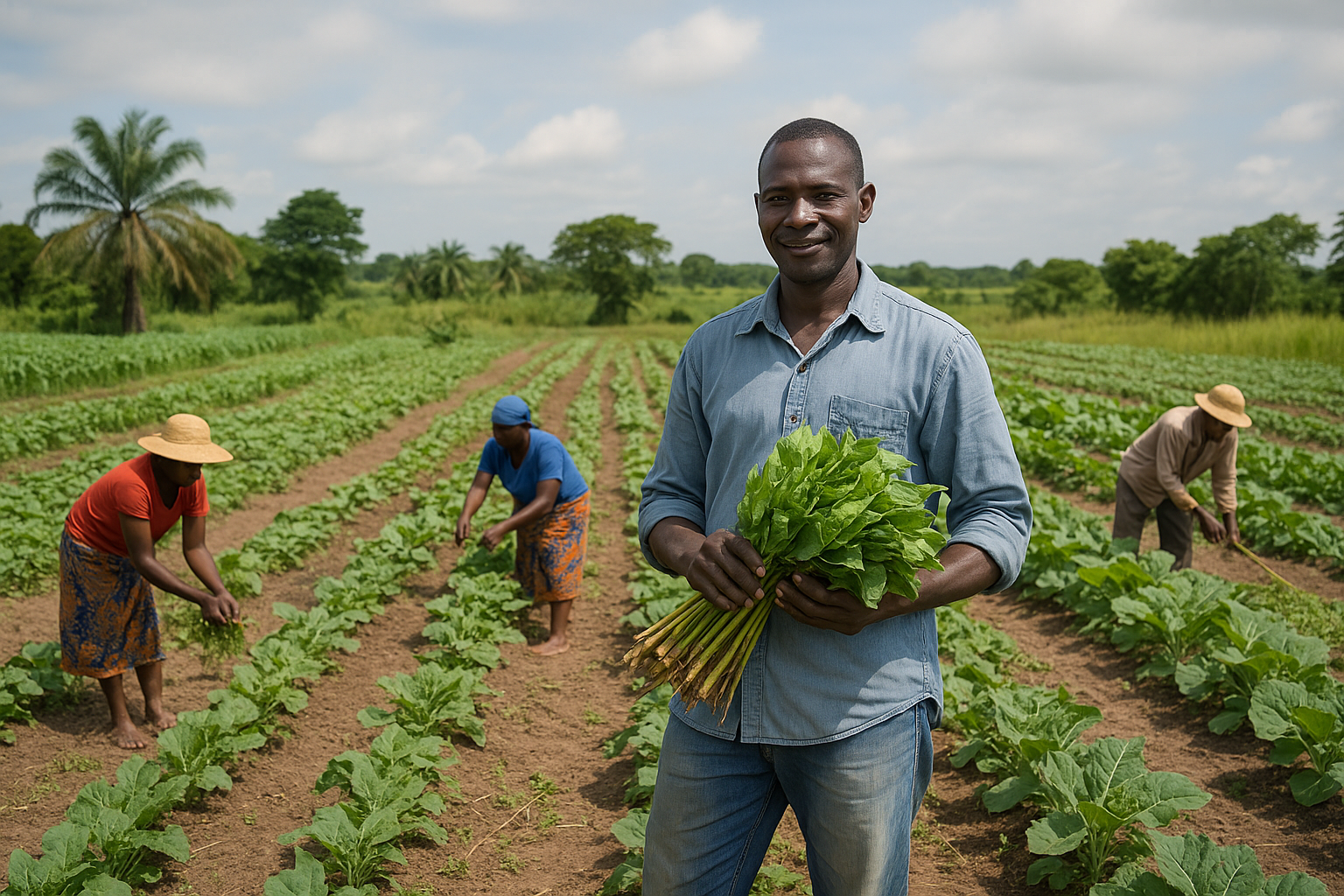ILO, FAO Lead Ghana Workshop to Boost Decent Work in Agri-Food Systems
“The JobAgri Ghana Project represents a timely and strategic intervention for our country,” said James Ayittey, Director of SRID at the Ministry of Food and Agriculture.

- Country:
- Ghana
In a major step toward transforming Ghana’s agricultural landscape into a hub of decent employment, the International Labour Organization (ILO) and the Food and Agriculture Organization of the United Nations (FAO) recently convened a two-day multi-stakeholder workshop in Accra. The event, part of the JobAgri Ghana Project, brought together over 40 stakeholders, including government policymakers, researchers, youth representatives, and rural development experts, to promote evidence-based policymaking and strategic investments in Ghana’s agri-food systems.
The workshop sought to bridge the gap between labour data, policy formulation, and practical implementation, emphasizing the need for inclusive growth and sustainable employment across the country’s agriculture value chains.
“The JobAgri Ghana Project represents a timely and strategic intervention for our country,” said James Ayittey, Director of SRID at the Ministry of Food and Agriculture. “Our agricultural policies must not only address food security but also drive decent work and inclusive development.”
A Collaborative, Multi-Institutional Effort
The JobAgri initiative is a joint undertaking by the ILO, FAO, the French Agricultural Research Centre for International Development (CIRAD), and the African Union, with financial backing from Germany’s Federal Ministry for Economic Cooperation and Development (BMZ).
Ghana was selected as a pilot country for the project due to its rich agricultural potential and the critical role of the rural economy in national development. Through the initiative, the partners aim to improve policy coherence between agriculture and employment, using robust, locally gathered data to drive decision-making and investment.
“The JobAgri project exemplifies collaboration, bringing together our collective strengths to deliver integrated solutions for Ghana’s agri-food sector,” said Vanessa Phala, ILO Country Office Director for Nigeria, Ghana, Sierra Leone, and Liberia.
Spotlight on Labour Survey Findings
A core focus of the Accra workshop was the presentation of preliminary findings from recent JobAgri labour surveys conducted among farming households and value chain actors. These surveys unveiled key insights into:
-
Labour distribution across gender, age, and production systems
-
Employment patterns and informality in agricultural activities
-
Youth engagement and barriers to decent work
-
Labour challenges related to productivity, seasonality, and rural infrastructure
These findings highlight the potential for agriculture to serve as a strategic engine for job creation, especially for young people and women in rural communities.
“This data is very critical,” said Phala. “It helps maximize both agricultural and employment outcomes, ensuring farming communities thrive and Ghana’s economy is energized.”
Building Capacity for Evidence-Based Policy
The workshop also featured capacity-building sessions focused on using FAO and ILO tools to:
-
Promote decent work and labour rights in agri-food systems
-
Develop youth employment strategies
-
Foster sustainable rural transformation
Through interactive discussions and collaborative exercises, participants explored how to apply international decent work frameworks to Ghana’s local context, making the sessions not only informative but also actionable.
“This workshop is a crucial step toward shaping policies that are grounded in evidence and responsive to the real needs of those who feed our nation,” emphasized Priya Gujadhur, FAO Representative to Ghana.
CIRAD: Bridging Science and Policy
CIRAD, a scientific research institution specializing in agriculture and development, also played a key role in the workshop. The organization presented its methodologies for analyzing labour dynamics in agri-food systems, highlighting how science-based evidence can guide practical and inclusive policymaking.
“When science and policy come together, we can create real change for farming communities,” said Claire Cerdan, Director of the Environment and Societies Department at CIRAD.
Toward a More Resilient and Inclusive Agricultural Economy
The JobAgri Ghana stakeholder workshop marks a pivotal milestone in the country’s efforts to transform agriculture into a source of decent and dignified work. As Ghana strives to reduce youth unemployment, promote rural resilience, and advance sustainable development, the integration of labour data into agricultural planning is becoming increasingly essential.
The event concluded with a strong call for continued stakeholder engagement, enhanced data-sharing mechanisms, and cross-sectoral coordination to ensure that agriculture delivers not only food security, but also livelihood security.
ALSO READ
Collaborative Efforts to Safeguard the Himalayas: Arunachal Pradesh's Vision for Sustainable Development
Private Capital: A Catalyst for Sustainable Development
Global South often received nothing more than token gestures on climate finance, sustainable development, & tech access: PM Modi at BRICS.
With sustainable development under threat, Sevilla summit rekindles hope and unity
How agritourism is emerging as public health strategy in sustainable development










